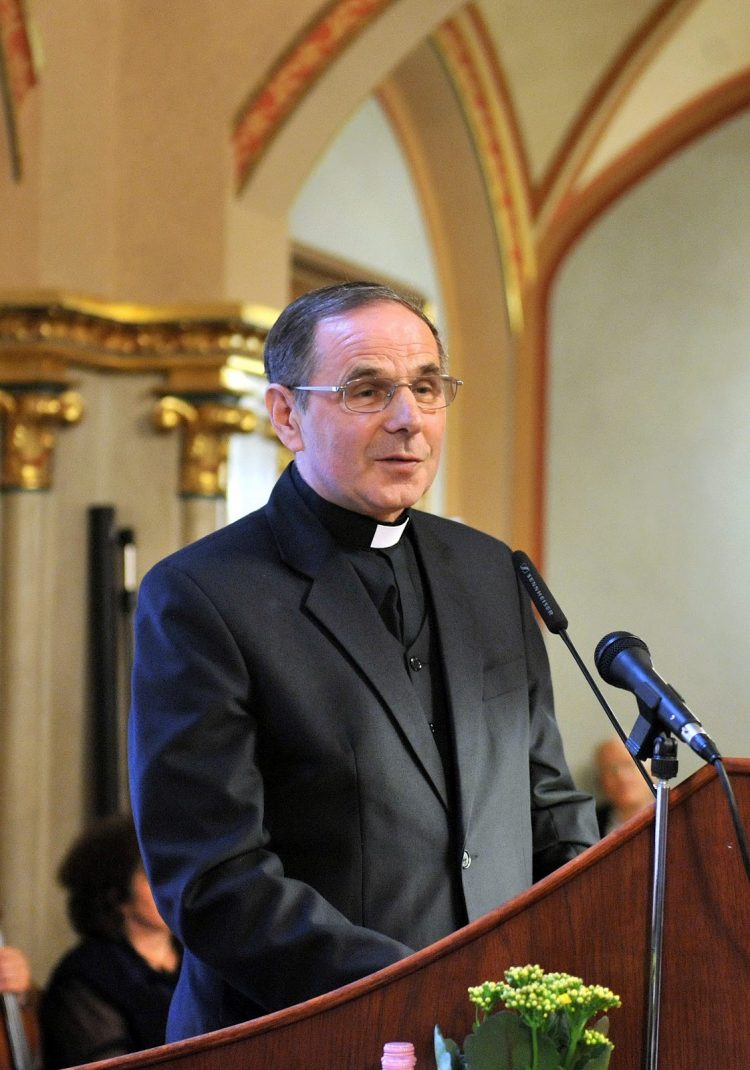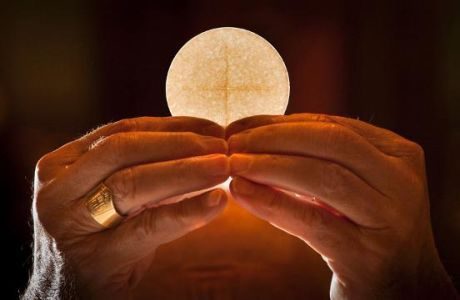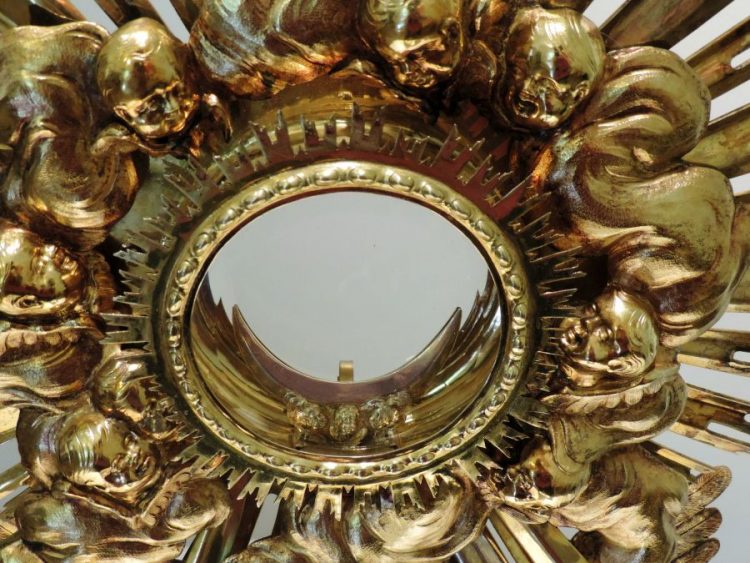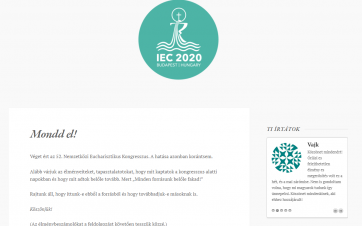What is the purpose of the Eucharistic Congresses? Why did this event come to life, and how did it change in the last one-and-a-half centuries? The essay of Lajos Dolhai, rector of the Theological College of Eger and president of the Theological Commission of the International Eucharistic Congress:

The local, national and international eucharistic congresses are festivities looking back at a tradition of around 152 years, where one can find in the centre Christ present in the Eucharist. We celebrate Him in the masses, on the processions, adorations, and even in our catechises, testimonies and in other cultural events. The goal and the purpose of the international eucharistic congresses is to make the Christian communities from all over the world - and mainly in the faithful of the organizing particular Church - realize, that the source and summit of the life and mission of the Church is the Eucharist.
The history of the international eucharistic congresses can be a very good lesson for us all. For the eucharistic congresses we can thank a young French girl - Émilie Tamisier (1843-1910), who first initiated a national eucharistic congress. with the help of priests - mainly St. Pierre-Julien Eymard (1811-1868), founder of the Association of Priests Adoring the Eucharis (sacramentin congregation). Finally, in 1881, with the approval of Pope Leo XIII, in Lille, France, the first international eucharistic congresses was organised.
The first congresses intended to make testimony about Jesus being present in the Eucharist, and in accordance with this intention the festive adorations and big processions were in the centre. The first rules about the goal of these congresses also emphasised this: "we shall strive, so that the people may recognise, love and serve our Lord, Jesus Christ in the Eucharist better... and his kingdom shall become more widespread in the world." Thanks to the decrees of Pope Pius X the organisers emphasised the importance of the communion more and more, and the eucharistic congresses became its main heralds.
In the statements of the Magisterium
In the following paragraphs we talk about the newest statements of the Magisterium, which - in shorter or longer forms - talk about the importance and goal of the national and international eucharistic congresses. Our research is limited to the post-II. Vatical Council documents, because from these we can see what we shall strive for in accordance to the will of the Church in that particular form of the Eucharist's reverence, what we call as eucharistic congress.

I would like to show the change of attitude with one example. About the International Eucharistic Congress in Budapest in 1938 a memorial album was published, which starts the events of the night of 27th May with the following title: "The light lights in the darkness". Subtitle: "The night-adoration and communion of one-hundred-and-fifty-thousand men on Heroes' Square". The description also refers to the fact that the organisers of the previous eucharistic congresses aspired to show the importance of the reverence of the Eucharist through adoration, big processions and the communion of many-thousand men. In these congresses the celebration of the Eucharist, the holy mass was forced in the background. Obviously, there were holy masses too, but their "unspoken" goal was to "ensure" the enough Eucharist for the adorations and processions. The previous congresses mainly laid stress on the adoration and the festive processions. Opposed to this, the document of the Congregation for Divine Worship and the Discipline of the Sacraments emphasised that the "celebration of the Eucharist shall be the ....)
After the II. Vatican Council there are only four documents which contains directives in connection with the eucharistic congresses. Already the 67. point of the document Eucharisticum Mysterium25. May 1967) of the Congregatio Sacrorum Rituum emphasises: the main goal of the congresses is that "the knowledge of the mystery of the Eucharist shall deepen in the soul of the faithful" It mentions the eucharistic processions as well as the different forms of prayer meetings but puts special stress on "the mass being the summit of the festivities".
St. John Paul II wrote his apostolic letter for Good Thursday at the beginning of his Petrine service about the mystery and adoration of the Eucharist (Dominicae cenae, 24. February 1980), but mainly about how important the Eucharist is in the spiritual life and pastoral care of the priests. The document shall be mentioned, because in the long list of the different forms of the adoration, on the last place, the eucharistic congresses can be found. The fruit of the Synod in the October of 2005 is the post-synodal document titled Sacramentum Caritatis, which was published with the approval of Pope Benedict XVI. This apostolic exhortation mentions among the different forms of the eucharistic prayer meetings the "local, national and international" eucharistic congresses (Sacramentum Caritatis, 22. February 2007). In this point of the document there are two points of view that are worth to listen to and to bear in mind. The Synod states that the different "prayer meetings" in connection with the Eucharist worth to exercise today, "appropriately modernized". We shall never forget, that "the personal relationship between the believer and Jesus present in the Eucharist, always refers the believer to the whole community of the Church and nourishes the realization of belonging to the body of Christ".
New Aspects
According to the Magisterium of our Chruch there are some new aspects, to which we shall pay more attention when organizing the new international eucharistic congresses. This was emphasized by Archbishop Piero Marini, president of the Pontifical Committee for International Eucharistic Congresses on the countrywide meeting of priests on 8th November 2017, the theme of which was the eucharistic congress in Budapest in 2020. These new aspects can also be observed in the related post -Vatican II documents and mainly in the liturgical book Holy Communion and Worship of the Eucharist Outside Mass, which has a chapter of the theme of the eucharistic congresses.
Point 109 of the liturgical book states the merit and goal of the eucharistic congresses, and at the same time the will and expectation of the Church: "We shall look at the eucharistic congresses as a 'station', to which a particular Church invites the Church of the country, the nation or all the Churches of the world, so that they may know the holy mystery of the Eucharist better from a certain aspect, and adore it openly in the bond of love and unity." (109)

In this sentence the phrase "We shall look at the eucharistic congresses as a 'station'" needs some explanation. This is understandable only to those, who have heard about the fact that since the Congress in Munich in 1960 the congresses are called Statio Orbis (station of the world) - based on the traditional Roman Liturgy of Stations - by the suggestion of the great Austrian liturgist, Josef Jungmann. The point of these liturgies was that the Pope, on the Sundays of Lent celebrated a mass in one of the prominent churches in Rome, thus showing the unity of the bishop, the priest and the faithful people. This tradition, called "statio urbis" became the idea of "Statio Orbis". As the Christians of Rome gathered together to celebrate the Eucharist back in the past, similarly, the international eucharistic congresses are displaying the unity of the Church on the level of the World Church. During each and every international eucharistic congress the Church, gathered from all over the world lives the summit of the eucharistic congress in celebrating the Eucharist, in the holy mass. So that is why in the post-Vatican II. congresses the central event is not the festive closing procession, but the joint celebration of the Eucharist.
Point 110 ask that about the "there shall be sufficient preliminary information location, theme and order of the congress being organized for both the particular church and the other churches." Obviously, the Pontifical Committee for International Eucharistic Congresses (Pontificio Comitato per i Congressi Eucaristici Internazionali), which was established by Pope Leo XIII in 1879 for the first international eucharistic congress (Lille, 1881) serves this purpose. The committee was elevated to the rank of Pontifical (pontificio) in 1986 by Pope John Paul II, and its eventual statutes were approved by Pope Benedict XVI on 24th December 2009. This is the task of the local committee too, which shall be raised by the competent ordinary in the city, which organizes the congress (Statutes, 16.). This committee, which goes by the name General Secretariat has to co-operate with the papal commission, in order to all the goals, objectives and tasks of the congress be realized. The text contains, that the committee should be "of specialists in scripture, liturgy, theology, anthropology, pastoral theology and ecumenism." The statute of the papal committee is clearer on this when it speaks that in the organizing country a theological committee should be established, which speaks in details about the theme of the congress in a document (Statute, Article 17.).
Point 111 warns us that we shall strive for three things during the preparations: on the one hand we shall have homilies, catechesis, lectures and conferences on the subject of the Eucharist; on the other hand we shall strive to make the believers' participation in the celebration of the Eucharist more zealous and active; and we also shall not forget that the Eucharist is the source of the diaconia, the charity rooted in faith.
Point 112 articulates some theoretical points of view in connection with the organizing of the congress. The first and most important of the four principles is that the "sacrifice of the Holy Mass" shall be the true center and summit. All the initiatives and all forms of piety shall be directed towards it. The processions with or without candles or the record-breaking adorations can be beautiful and spectacular, but it is more important than any of these that the local Church shall celebrate the Eucharist, the source and summit of the Christian life together with the Catholics arriving from every corner of the world (SC 10, LG 11, PO 5).

During the congress Liturgies of the Word and catechesis also shall be held in connection with the given theme in order to help the faithful to understand the mystery of the Eucharist and make it come real in the real life. Along with the joint celebrations a smaller or greater group of faithful shall together pray before the Eucharist in the previously appointed churches. Obviously, among the main events of the Eucharistic Congress there are the eucharistic processions. The document asks to keep the rules and regulations of the eucharistic processions, which are clearly expressed in the decree of the congregation, beginning with Eucharisticum mysterium (cf. points 100-108); but the local ecclesial and societal circumstances should also be taken into consideration.
The eucharistic congresses faithfully reflect and proclaim the Church's belief in the Eucharist. In the past few centuries - because of the controversial theological aspects of the reformation - in the theology we emphasized the sacrificial meaning of the mass and the real presence. The Post-Vatican II eucharistic theology has some aspects, which we shall not forget, neither in organizing the eucharistic congresses, nor in the eucharistic spirituality.
Msgr. Lajos Dolhai
Rector of the Theological College of Eger










